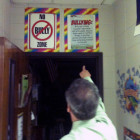
Youth Crime Declining in Massachusetts, Says New Report
|
A new Data Points report from the organization Citizens for Juvenile Justice indicates that juvenile arrests in Massachusetts are on the decline, with the number of young people being arrested in 2011 dropping by more than 20 percent compared to 2010 findings. The report also finds violent and property offenses committed by juveniles in the state to be decreasing, with 2009 data indicating an 8 percent decrease and 4 percent decrease, respectively, from juvenile violent crime and property crime rates in 2008. Compared to 1998 data, researchers say that property crimes and violent crimes committed by juveniles have decreased dramatically, with the rates in Massachusetts for violent crime plummeting by 36 percent and property crime dropping by 45 percent over the 11-year study window. Researchers have also observed a decline in Massachusetts juvenile court charges. For the FY 2012, the total number of “youthful offender” and delinquency proceedings brought before state juvenile courts dropped 13 percent from FY 2011 data, representing nearly a 44 percent decline in total proceedings since 2008.








